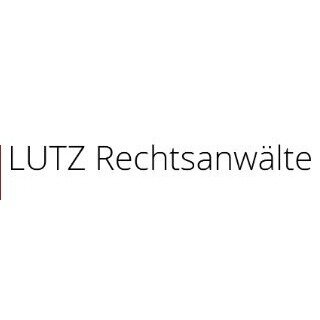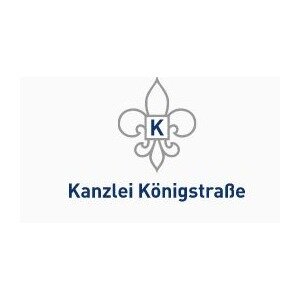Best Corporate & Commercial Lawyers in Stuttgart
Share your needs with us, get contacted by law firms.
Free. Takes 2 min.
List of the best lawyers in Stuttgart, Germany
Germany Corporate & Commercial Legal Questions answered by Lawyers
Browse our 1 legal question about Corporate & Commercial in Germany and read the lawyer answers, or ask your own questions for free.
- I want to ask about how to formalize partnership deed
- My partner and I are from Pakistan but he has a business in Germany which is over 10 years. I want to join him as a partner in his company and I want to formalize our relationship. What are the necessary things I must do to achieve that and what... Read more →
-
Lawyer answer by Streiff Law - your International Business Law firm from Berlin
Hi, Thanks for your question. The answer and the form, process and documents of participation depend on the type of company your partner owns. Is it a GmbH/UG, a KG or a single entrepeneruship? Best regards, Daniel Streiff
Read full answer
About Corporate & Commercial Law in Stuttgart, Germany
Stuttgart is one of Germany's leading financial and industrial hubs, hosting a range of companies from global corporations to dynamic start-ups. Corporate & Commercial law in Stuttgart deals with the legal framework guiding the formation, operation, restructuring, and dissolution of businesses. This includes regulations on contracts, mergers and acquisitions, company governance, compliance, intellectual property, and dispute resolution. Stuttgart's legal landscape reflects both national German law and specific regional economic characteristics, emphasizing a dynamic and internationally oriented business environment.
Why You May Need a Lawyer
Engaging a lawyer in Corporate & Commercial matters is crucial to protect interests, ensure compliance, and facilitate smooth business operations. Common scenarios where professional legal advice is beneficial include:
- Starting or incorporating a business and selecting the right legal structure
- Drafting, reviewing, or negotiating business contracts
- Managing mergers, acquisitions, or joint ventures
- Ensuring compliance with German and EU regulations
- Resolving shareholder disputes or issues with company management
- Addressing intellectual property concerns, including trademarks and patents
- Handling employee relations and employment contracts
- Navigating restructurings, insolvency, or business liquidation
- Cross-border transactions and international trade
- Dealing with commercial leases and real estate transactions
Given the complexities and potential liabilities, early involvement of a legal expert can save companies time and resources while reducing risks.
Local Laws Overview
Corporate & Commercial law in Stuttgart is mainly governed by federal German statutes, though regional factors and economic conditions also play a role. Key aspects include:
- Company Formation: German law recognizes several types of business entities, such as GmbH (limited liability company), AG (public limited company), and partnerships.
- Commercial Register: All companies must be registered with the local Handelsregister (Commercial Register), which is managed by the Stuttgart District Court.
- Corporate Governance: Rules for management boards, supervisory boards, and shareholder meetings are strict, with transparent record-keeping and reporting requirements.
- Contract Law: The Bürgerliches Gesetzbuch (BGB) serves as the backbone for contract formation, enforcement, and dispute resolution.
- Compliance: Companies must comply with laws around anti-money laundering, data protection (GDPR), and anti-corruption.
- Employment: Employment relations are heavily regulated, and companies must abide by laws concerning employee rights, health and safety, and collective bargaining.
- Taxation: Corporate tax obligations are significant and involve both federal and state-level authorities, requiring diligent compliance and structuring.
- Intellectual Property: Protection is available for trademarks, patents, designs, and copyrights under both national and EU law.
Keeping pace with evolving German and EU regulations, as well as understanding intersectional areas like competition law or foreign investment controls, is vital for businesses in Stuttgart.
Frequently Asked Questions
What legal forms can I choose for my business in Stuttgart?
Common legal forms include GmbH (limited liability company), AG (public limited company), OHG (general partnership), KG (limited partnership), and sole proprietorship. Each form has different requirements regarding liability, management, and registration.
How do I register my company in Stuttgart?
Companies must be entered into the Commercial Register at the local District Court (Amtsgericht Stuttgart). The process requires submission of formal documents, verification by a notary, and payment of fees.
What are the basic tax obligations for companies?
Companies in Stuttgart are subject to corporate income tax, trade tax, and value added tax. Regular filings and financial statements are required. Specific tax rates and allowances can depend on the company’s size and activities.
Is it necessary to have a supervisory board?
A supervisory board is mandatory for public limited companies (AG) and for larger limited liability companies (GmbH) that meet specific requirements regarding size and number of employees.
How can I protect my intellectual property in Stuttgart?
Protection is available through registration with the German Patent and Trade Mark Office (DPMA) or European bodies. A lawyer can assist with the application process and enforcement of rights.
What should be included in a commercial contract?
Essential elements include identification of parties, terms of goods or services, payment conditions, liability clauses, dispute resolution mechanisms, termination terms, and signatures.
What are the steps in a merger or acquisition?
Key steps include due diligence, negotiating and drafting agreements, obtaining regulatory approvals, and registering changes in the Commercial Register. Legal representation is crucial throughout to manage risks and compliance.
How do employment laws affect my business?
German employment law sets out strict obligations regarding employee contracts, working hours, remuneration, termination, and workplace safety. Collective agreements and employee representation may also apply.
What happens if my company faces insolvency?
Directors must file for insolvency without undue delay if the company becomes unable to pay its debts. Insolvency proceedings aim to satisfy creditors and may involve restructuring or liquidation of assets.
Are foreign investors subject to special rules?
Foreign investors are generally welcome, but certain sectors may be subject to review or approval. Compliance with anti-money laundering and notification requirements is essential.
Additional Resources
Several organizations and authorities provide information and assistance regarding Corporate & Commercial matters in Stuttgart:
- Stuttgart Chamber of Industry and Commerce (IHK Region Stuttgart): offers guidance on starting and running a business
- German Patent and Trade Mark Office (DPMA): for IP protection
- Federal Financial Supervisory Authority (BaFin): oversees financial market activities
- Stuttgart District Court (Amtsgericht Stuttgart): manages the Commercial Register
- Chambers of Commerce, lawyers' associations, and business advisory organizations for networking and support
Next Steps
If you require legal assistance in Corporate & Commercial matters in Stuttgart, consider the following steps:
- Clearly define your legal issue or the question you need answered
- Gather any relevant documents such as contracts, registrations, or correspondence
- Consult with a specialized lawyer who understands Corporate & Commercial law in the Stuttgart region
- Check for recommendations or referrals from trusted business partners or professional organizations
- Schedule a consultation to discuss your case, clarify the process, and understand the costs involved
- Follow the legal advice and maintain ongoing communication with your lawyer as your situation develops
Timely and tailored legal counsel can help safeguard your business interests and support your commercial success in Stuttgart.
Lawzana helps you find the best lawyers and law firms in Stuttgart through a curated and pre-screened list of qualified legal professionals. Our platform offers rankings and detailed profiles of attorneys and law firms, allowing you to compare based on practice areas, including Corporate & Commercial, experience, and client feedback.
Each profile includes a description of the firm's areas of practice, client reviews, team members and partners, year of establishment, spoken languages, office locations, contact information, social media presence, and any published articles or resources. Most firms on our platform speak English and are experienced in both local and international legal matters.
Get a quote from top-rated law firms in Stuttgart, Germany — quickly, securely, and without unnecessary hassle.
Disclaimer:
The information provided on this page is for general informational purposes only and does not constitute legal advice. While we strive to ensure the accuracy and relevance of the content, legal information may change over time, and interpretations of the law can vary. You should always consult with a qualified legal professional for advice specific to your situation.
We disclaim all liability for actions taken or not taken based on the content of this page. If you believe any information is incorrect or outdated, please contact us, and we will review and update it where appropriate.
Browse corporate & commercial law firms by service in Stuttgart, Germany
Stuttgart, Germany Attorneys in related practice areas.











